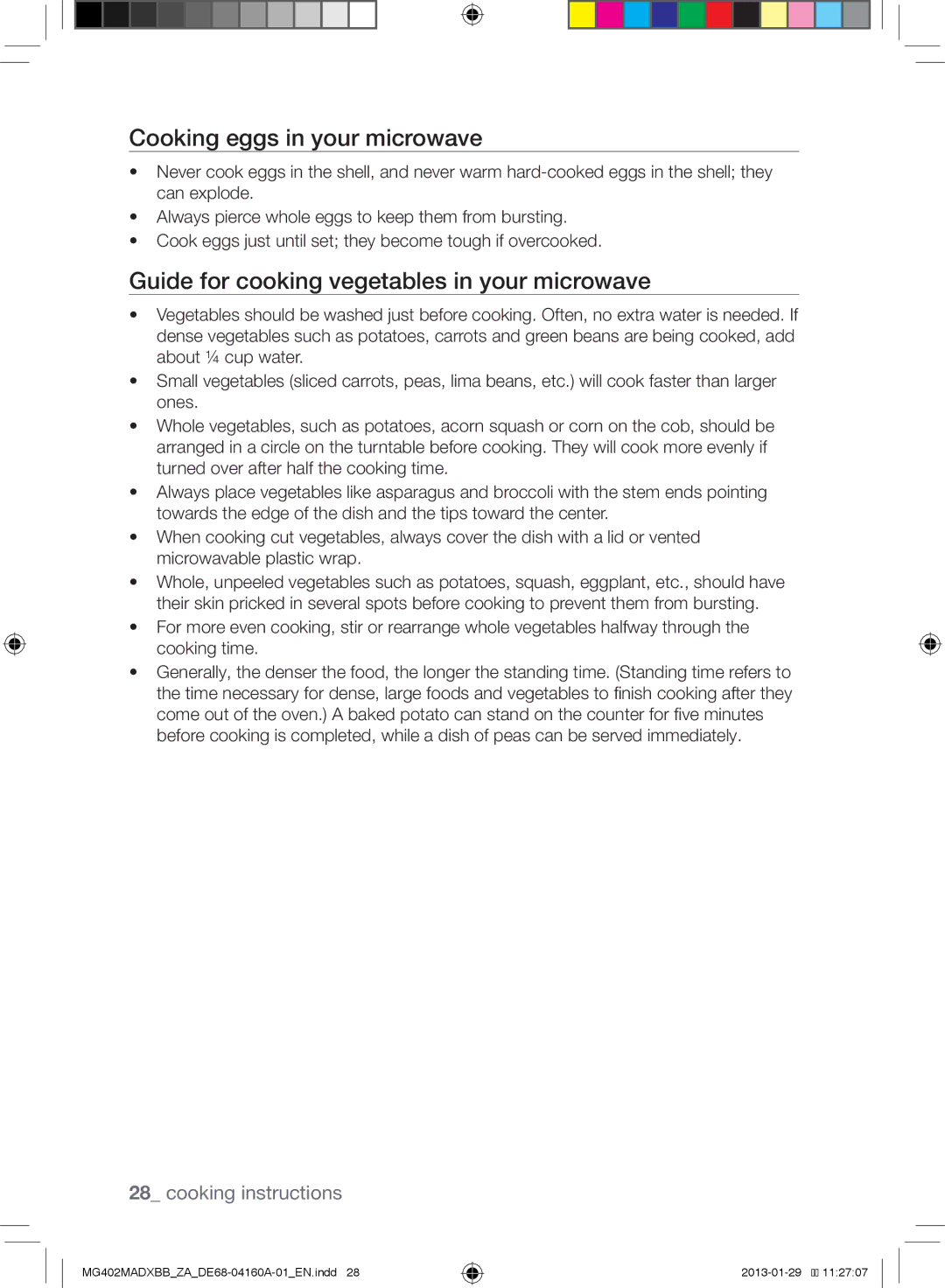
Cooking eggs in your microwave
•Never cook eggs in the shell, and never warm
•Always pierce whole eggs to keep them from bursting.
•Cook eggs just until set; they become tough if overcooked.
Guide for cooking vegetables in your microwave
•Vegetables should be washed just before cooking. Often, no extra water is needed. If dense vegetables such as potatoes, carrots and green beans are being cooked, add about ¼ cup water.
•Small vegetables (sliced carrots, peas, lima beans, etc.) will cook faster than larger ones.
•Whole vegetables, such as potatoes, acorn squash or corn on the cob, should be arranged in a circle on the turntable before cooking. They will cook more evenly if turned over after half the cooking time.
•Always place vegetables like asparagus and broccoli with the stem ends pointing towards the edge of the dish and the tips toward the center.
•When cooking cut vegetables, always cover the dish with a lid or vented microwavable plastic wrap.
•Whole, unpeeled vegetables such as potatoes, squash, eggplant, etc., should have their skin pricked in several spots before cooking to prevent them from bursting.
•For more even cooking, stir or rearrange whole vegetables halfway through the cooking time.
•Generally, the denser the food, the longer the standing time. (Standing time refers to
the time necessary for dense, large foods and vegetables to finish cooking after they come out of the oven.) A baked potato can stand on the counter for five minutes before cooking is completed, while a dish of peas can be served immediately.
28_ cooking instructions
![]()
![]() 11:27:07
11:27:07
